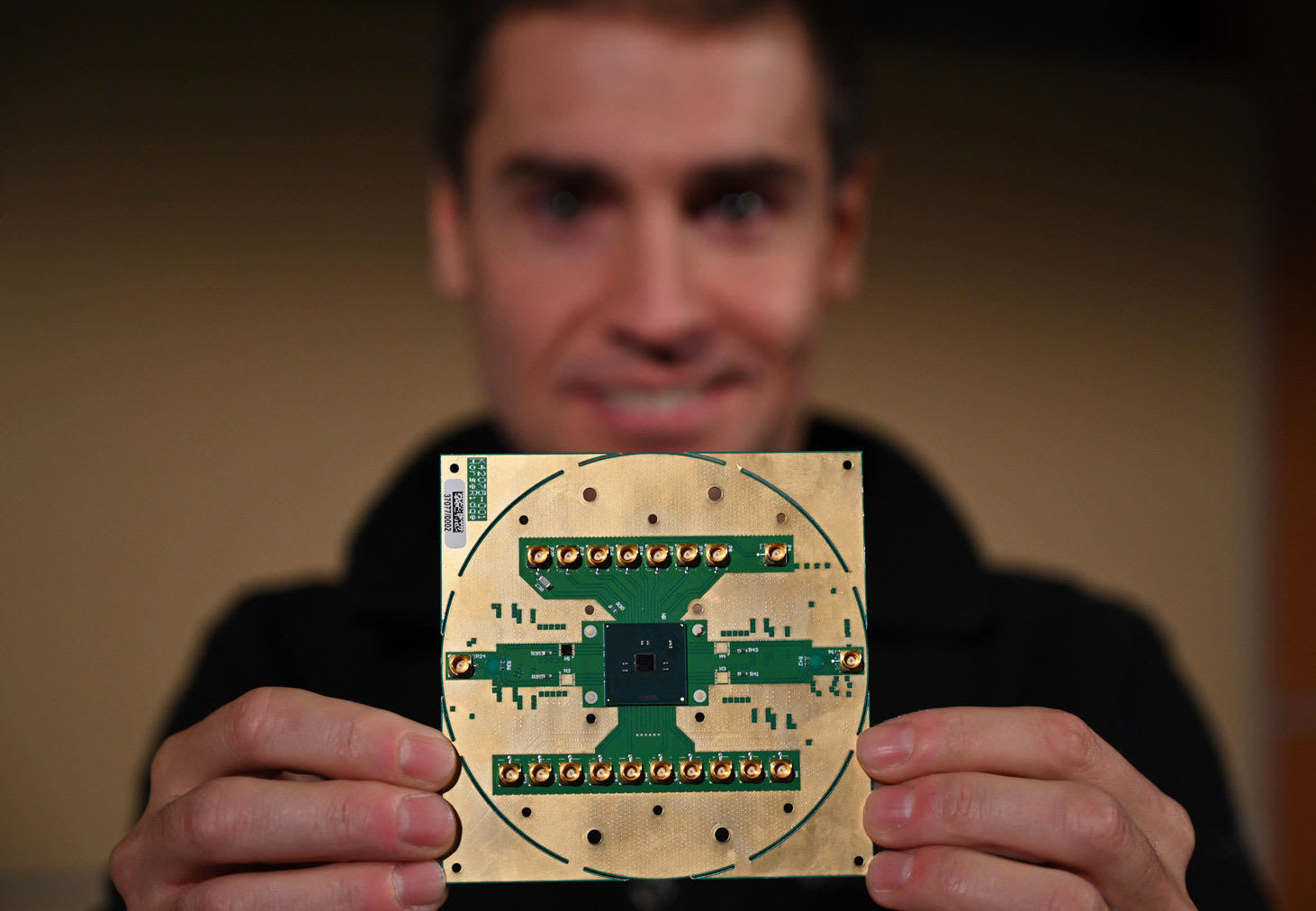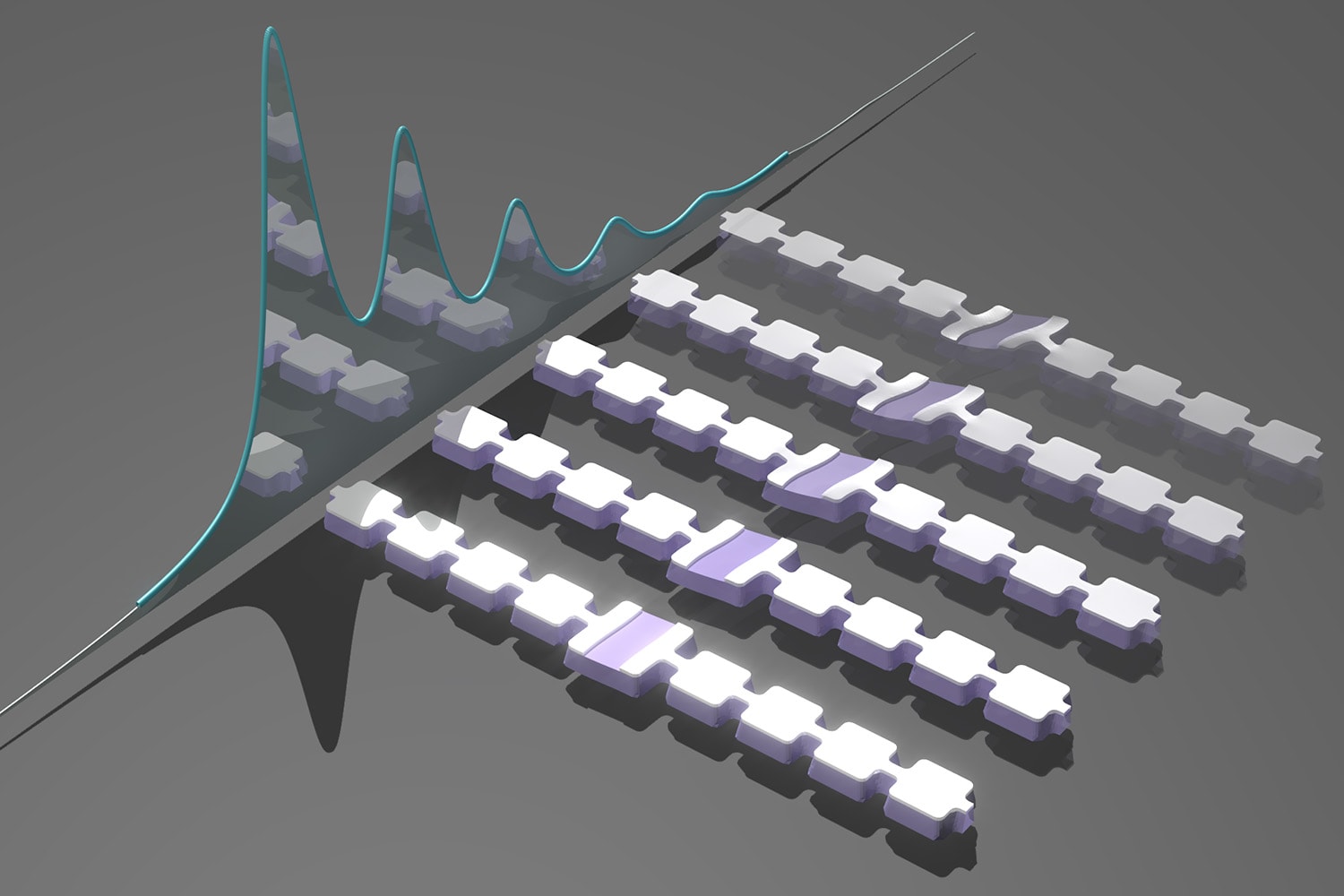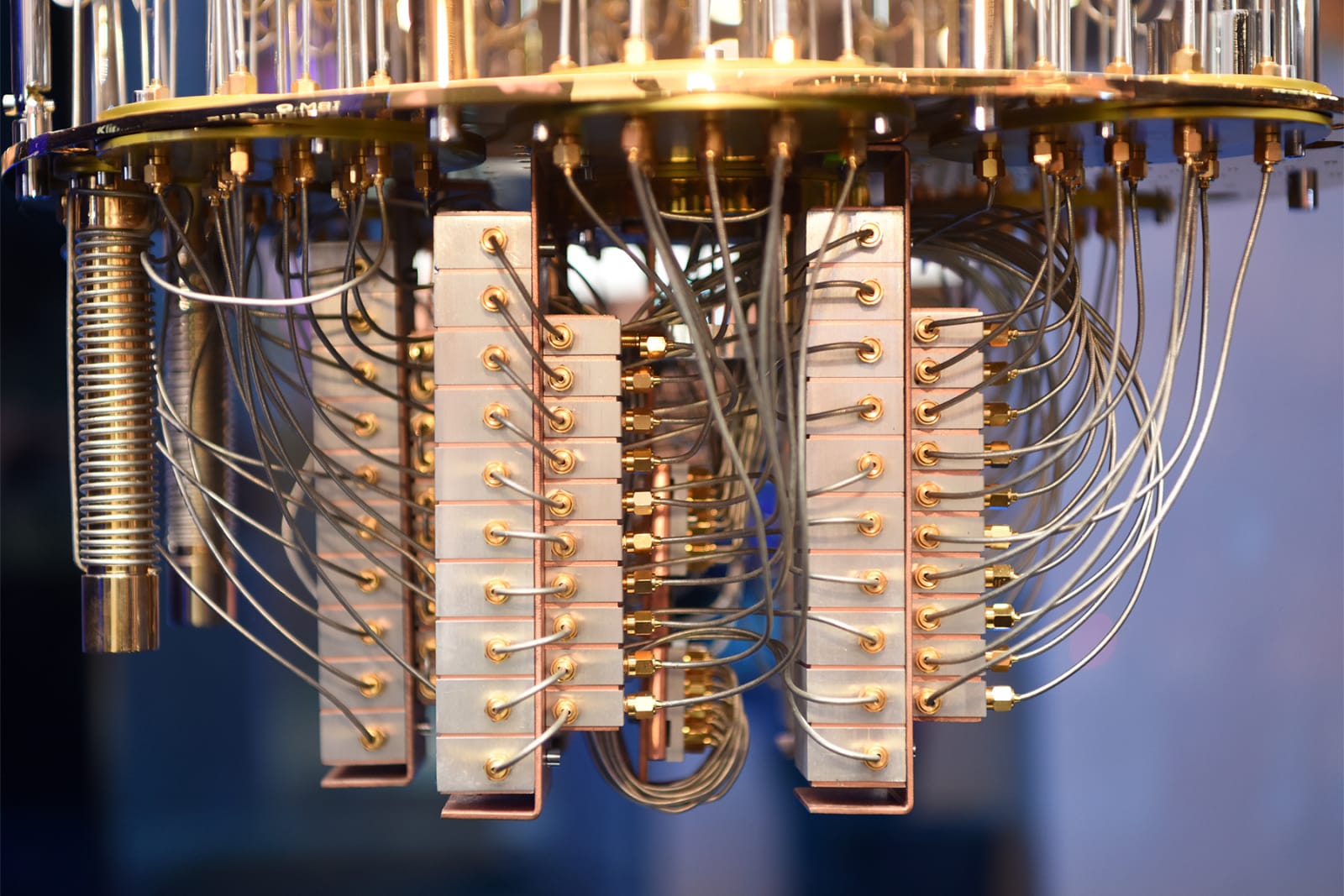
If you've been paying attention, you know the quantum computing revolution is coming -- and so far the world has a mini quantum network, not to mention the $10,000 D-Wave One, to show for it. Researchers from the University of Melbourne and University College, London, have now developed the "first working quantum bit based on a single atom of silicon." By measuring and manipulating the magnetic orientation, or spin, of an electron bound to a phosphorus atom embedded in a silicon chip, the scientists were able to both read and write information, forming a qubit, the basic unit of data for quantum computing.
The team used a silicon transistor, which detects the electron's spin and captures its energy when the spin's direction is "up." Once the electron is in the transistor, scientists can change its spin state any way they choose, effectively "writing" information and giving them control of the quantum bit. The next step will be combing two qubits into a logic step, with the ultimate goal being a full-fledged quantum computer capable of crunching numbers, cracking encryption codes and modeling molecules that would put even supercomputers to shame. But, you know, baby steps.
Filed under: Science, Alt
Researchers create working quantum bit in silicon, pave way for PCs of the future originally appeared on Engadget on Fri, 21 Sep 2012 00:47:00 EDT. Please see our terms for use of feeds.
Permalink  The Register
The Register |
 UNSW Australia
UNSW Australia |
Email this |
Comments
 Intel is determined to play an important role in quantum computing, and it just outlined a component that will play a key part in that strategy. Intel and QuTech have provided some technical details for Horse Ridge, a previously-teased cryogenic cont...
Intel is determined to play an important role in quantum computing, and it just outlined a component that will play a key part in that strategy. Intel and QuTech have provided some technical details for Horse Ridge, a previously-teased cryogenic cont...
 Intel is determined to play an important role in quantum computing, and it just outlined a component that will play a key part in that strategy. Intel and QuTech have provided some technical details for Horse Ridge, a previously-teased cryogenic cont...
Intel is determined to play an important role in quantum computing, and it just outlined a component that will play a key part in that strategy. Intel and QuTech have provided some technical details for Horse Ridge, a previously-teased cryogenic cont...
 Google may have made a breakthrough on the path toward creating a viable quantum computer. In a research paper briefly published to NASA's website and only seen by the Financial Times, the company reportedly claims to have achieved a feat known as "q...
Google may have made a breakthrough on the path toward creating a viable quantum computer. In a research paper briefly published to NASA's website and only seen by the Financial Times, the company reportedly claims to have achieved a feat known as "q...
 Researchers at Stanford have developed a "quantum microphone" which can detect the smallest known units of sound -- packets of vibrational energy called phonons. The device could form the basis for even more efficient quantum computers.
Researchers at Stanford have developed a "quantum microphone" which can detect the smallest known units of sound -- packets of vibrational energy called phonons. The device could form the basis for even more efficient quantum computers.
 Quantum computing has the potential to revolutionize health care, AI, financial modeling, weather simulation and more. It's also going to shake up encryption as we know it. Without advances in post-quantum cryptography, quantum computing could make i...
Quantum computing has the potential to revolutionize health care, AI, financial modeling, weather simulation and more. It's also going to shake up encryption as we know it. Without advances in post-quantum cryptography, quantum computing could make i...
 The very concept of a quantum computer can be daunting, let alone programming it, but Microsoft thinks it can offer a helping hand. It's partnering with Alphabet's X and Brilliant on an online curriculum for quantum computing. The course starts wit...
The very concept of a quantum computer can be daunting, let alone programming it, but Microsoft thinks it can offer a helping hand. It's partnering with Alphabet's X and Brilliant on an online curriculum for quantum computing. The course starts wit...
 A breakthrough in studying light might just be the ticket to the future of quantum computing. Researchers at EPFL have found a way to determine how light behaves beyond the limitations of wavelengths, opening the door to encoding quantum data in a s...
A breakthrough in studying light might just be the ticket to the future of quantum computing. Researchers at EPFL have found a way to determine how light behaves beyond the limitations of wavelengths, opening the door to encoding quantum data in a s...

 Researchers at MIT and Harvard have created a new form of matter by binding photons together into molecules, thus proving …
Researchers at MIT and Harvard have created a new form of matter by binding photons together into molecules, thus proving …


